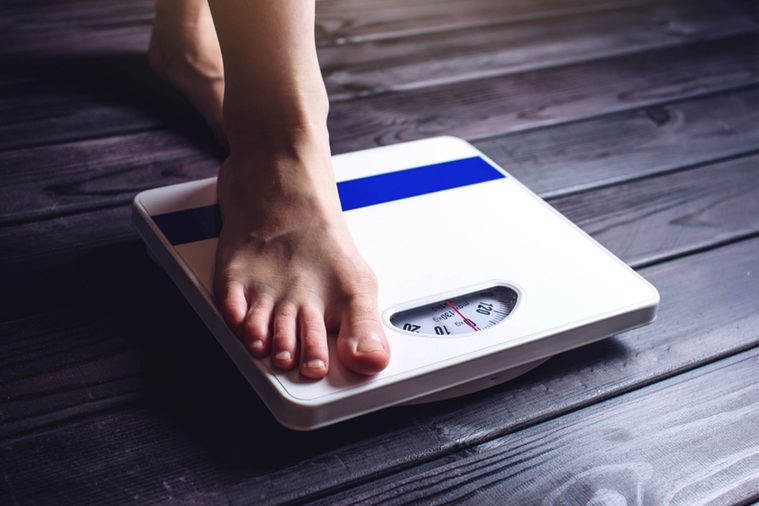Yikes! Gaining Just 6 Pounds After Graduation Could Have Scary Health Consequences
Updated: Jul. 24, 2017
Work off those pounds now or pay the consequences later.
 If you thought the college fear of the freshman 15 was bad, a new study has even worse news. Packing on pounds might seem like a normal part of getting older (especially with these sneaky causes of weight gain), but that little pooch could have serious health consequences. Gaining just several pounds from early to mid-adulthood could up your risk of major diseases.
If you thought the college fear of the freshman 15 was bad, a new study has even worse news. Packing on pounds might seem like a normal part of getting older (especially with these sneaky causes of weight gain), but that little pooch could have serious health consequences. Gaining just several pounds from early to mid-adulthood could up your risk of major diseases.
A study in the journal JAMA tracked health outcomes of more than 118,000 adults for at least 26 years. When participants were 30 or older, researchers asked the women and men what they’d weighed at ages 18 and 21, respectively, to figure how much they gained by 55. After their middle ages, participants kept reporting whether they had health problems like type 2 diabetes, high blood pressure, and cancer. (Think you could be at risk? Try these effective ways to avoid cancer.)
On average, women gained 28 pounds and men gained 21 pounds between young adulthood and age 55. But the real kicker? Even gaining way less than that—as little as six pounds—was still linked with health problems later in life.
Those who’d gained a moderate amount of weight (between six and 22 pounds) were more likely to get type 2 diabetes, high blood pressure, cardiovascular disease, and obesity-related cancer than those who’d gained less or lost weight, the study found. (Don’t miss these eating habits proven to prevent diabetes.) Plus, those who didn’t gain much weight were more likely to have “healthy aging,” as in no serious medical issues, cognitive decline, or major physical limitations.
In fact, every 11 pounds a person gained upped their risk for type 2 diabetes by 31 percent, high blood pressure by 14 percent, and cardiovascular disease by 8 percent. (Already have high blood pressure? Switching to this diet could get you off medication.) Each 11-pound gain also meant volunteers were 17 percent less likely to achieve healthy aging.
Gaining more than 44 pounds had even bigger consequences, like higher risk of death.
As you get older, it might seem natural to put on a pound or two every year. But if you’re not careful, that gradual gain can add up. “Prevention of weight gain through healthy diets and lifestyle is of paramount importance,” study co-author Yan Zheng, professor of epidemiology at Fudan University, China, says in a statement.
To get back to your high school dress size, try these effective ways to lose weight without exercise, and don’t forget about these other healthy habits your 80-year-old self will thank you for.











